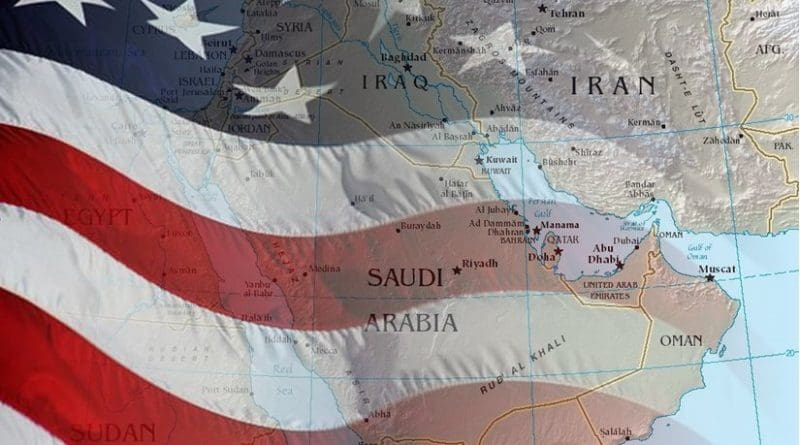The Middle East Under Trump – OpEd
By Arab News
By Osama Al-Sharif*
Barack Obama’s presidency is in its waning days, and the US and the rest of the world are bracing for the unknown under a man who has befuddled his allies even before his foes. Donald Trump will take over a sharply divided country, and will immediately face foreign policy challenges where off-the-cuff and oversimplified solutions will not do.
It is fair to say that the world, and much of the US, is disappointed with Obama. His charisma and optimistic promises for a better world enthralled millions of people from all regions and backgrounds. But even Obama, the prudent leader and intellectual with a quasi-philosophical approach to issues, overestimated his personal appeal and the power and influence of the US.
Obama leaves a different world than the one he inherited: Bitterly divided as underlined by the rise of populist movements in Europe and at home, vulnerable to global terrorism and extremism, economically weaker, uncertain over the future, and entangled by regional crises — especially in the Middle East — with global social, cultural and political ramifications.
Yet Obama managed to pursue a course that put America’s immediate interests first. He fulfilled a promise to drastically cut back US troops in Iraq and Afghanistan, avoided getting trapped further in dishevelled conflicts — especially in Syria — following the messy outcome of NATO’s intervention in Libya, and while failing to deliver on his promise to secure an independent Palestine by the end of his term, he tried to stay on the right side of history by condemning Jewish settlement activities and supporting the two-state solution.
His success in concluding the Iran nuclear deal will be viewed more favorably by his successor, although his utter failure in checking Iran’s regional expansion will debunk that deal’s credibility.
On Russia, Obama appears to have underestimated President Vladimir Putin’s determination to oversee Moscow’s resurgence as a regional player — especially in Eastern Europe and Central Asia — and as a global power broker, Syria being the obvious example.
Domestically, Obama’s biggest achievement was mending the US economy and saving the American auto industry. He was a classic Democratic president, although many will debate his failure to narrow the gap between rich and poor, and to understand the depth of the socio-economic crisis that ripped America’s heartland and gave rise to Trump’s populism.
For the Middle East, Obama’s presidency was particularly disappointing for different reasons. Conservative Arab governments believe he initiated America’s untidy withdrawal from the region, allowing Iran to inflate its influence in Iraq and Syria and meddle in the internal affairs of Gulf states and Yemen.
His reluctance to adopt a clear and decisive strategy on Syria has frustrated Washington’s allies, including Turkey and Saudi Arabia. Even in the war against Daesh, many believe the Obama administration could have done more to avert its phenomenal territorial spread in Syria and Iraq.
For Israel, even though he signed the largest-ever military aid package, Prime Minister Benyamin Netanyahu projected Obama as misled on Iran and on Israeli settlements. Equally frustrated with Obama is Egypt’s current regime, which faults Washington for facilitating the rise of the Muslim Brotherhood to power after the Jan. 25 revolution that toppled trusted ally President Hosni Mubarak.
Trump, who has denounced many of Obama’s Middle East policies, may soon discover that there is no easy way to chart a markedly variant course on many issues. His pro-Israel stand, which will immediately translate into a major departure from decades-long US policy on East Jerusalem and West Bank settlements, provides no solution to the Israeli-Palestinian conflict. It will certainly complicate the conflict, and trigger major battles at the UN, the International Criminal Court (ICC) and other fora.
His vow to swiftly crush Daesh will soon be tested on the ground. Military victories will bring no end to religious extremism and the gaping Sunni-Shiite divide, which is being pushed by radical Iranian leaders.
In Syria, Trump may well support Putin’s recent initiatives to seal a negotiated political deal. However, his administration will have to find ways to assure US regional allies, including Israel and Turkey, that Iran’s permanent presence in Syria will be checked or even reversed.
Trump will be pressed by his national security team to maintain or beef up the US military presence in the Arabian Gulf to ward off Iran’s rising threat. Again, this will test Washington’s relations with its Gulf allies.
Obama has left a complicated Middle Eastern inheritance to his successor, and Trump’s quick and often rudimentary response to evolving crises in this region will send mixed and contradictory messages to both allies and foes.
The biggest test will be the shape and context of US leadership abroad, and whether Trump will opt for a return to an interventionist approach or lean toward an isolationist path. Obama’s reserved approach to global affairs will soon give way to a more incoherent, and in many cases impulsive, one.
*Osama Al-Sharif is a journalist and political commentator based in Amman.


Thoughtful and helpful in developing a panorama of what Trump will face. Seems that he may need some schooling in what American interests are in the region and how they can be contradictory. Russia doesn’t have this problem because it only has one core belief – in its interests. The US historically has sought to balance its immediate interests with vague ideals regarding democracy and governance. We are in for quite an interesting and perhaps provocative four years.